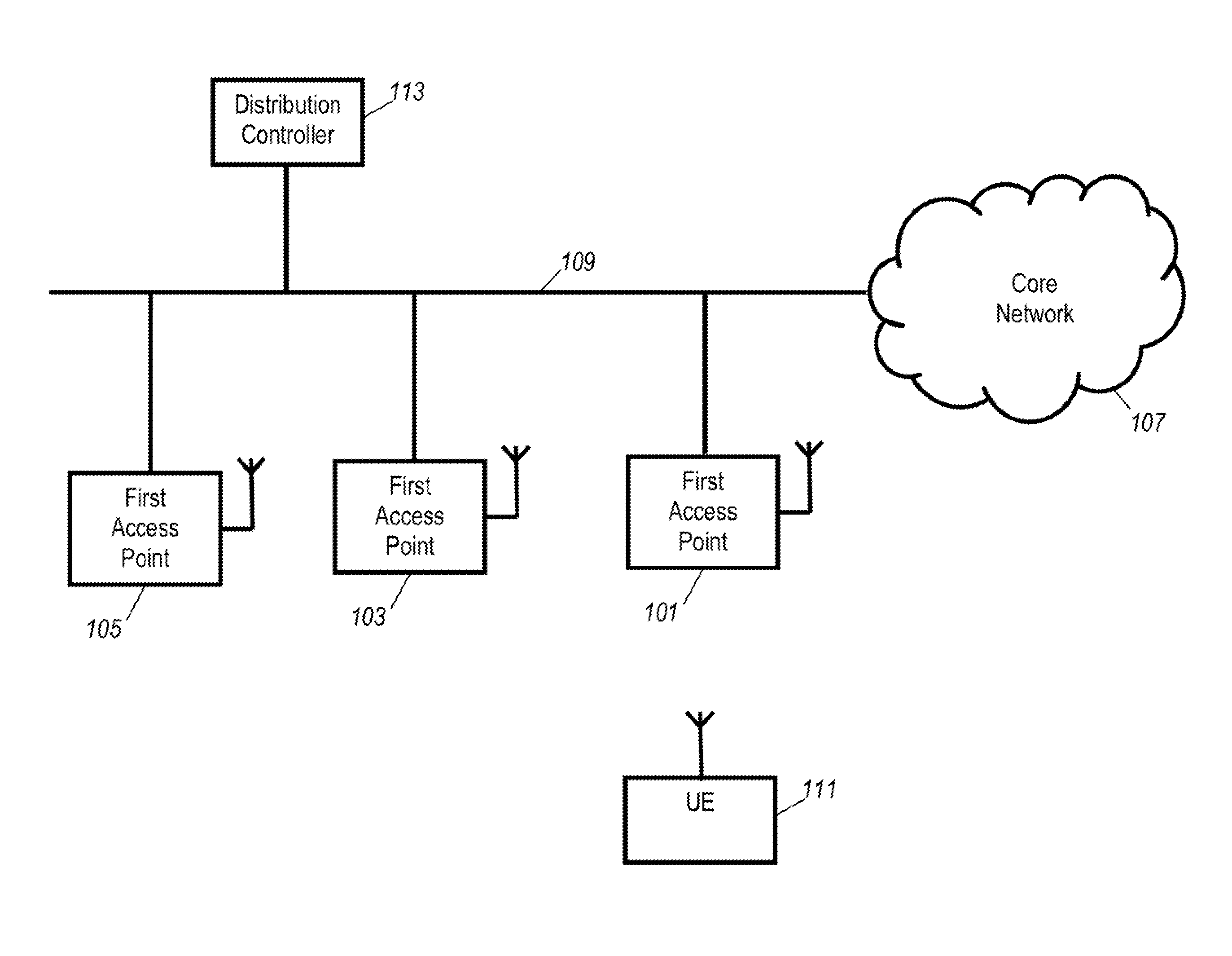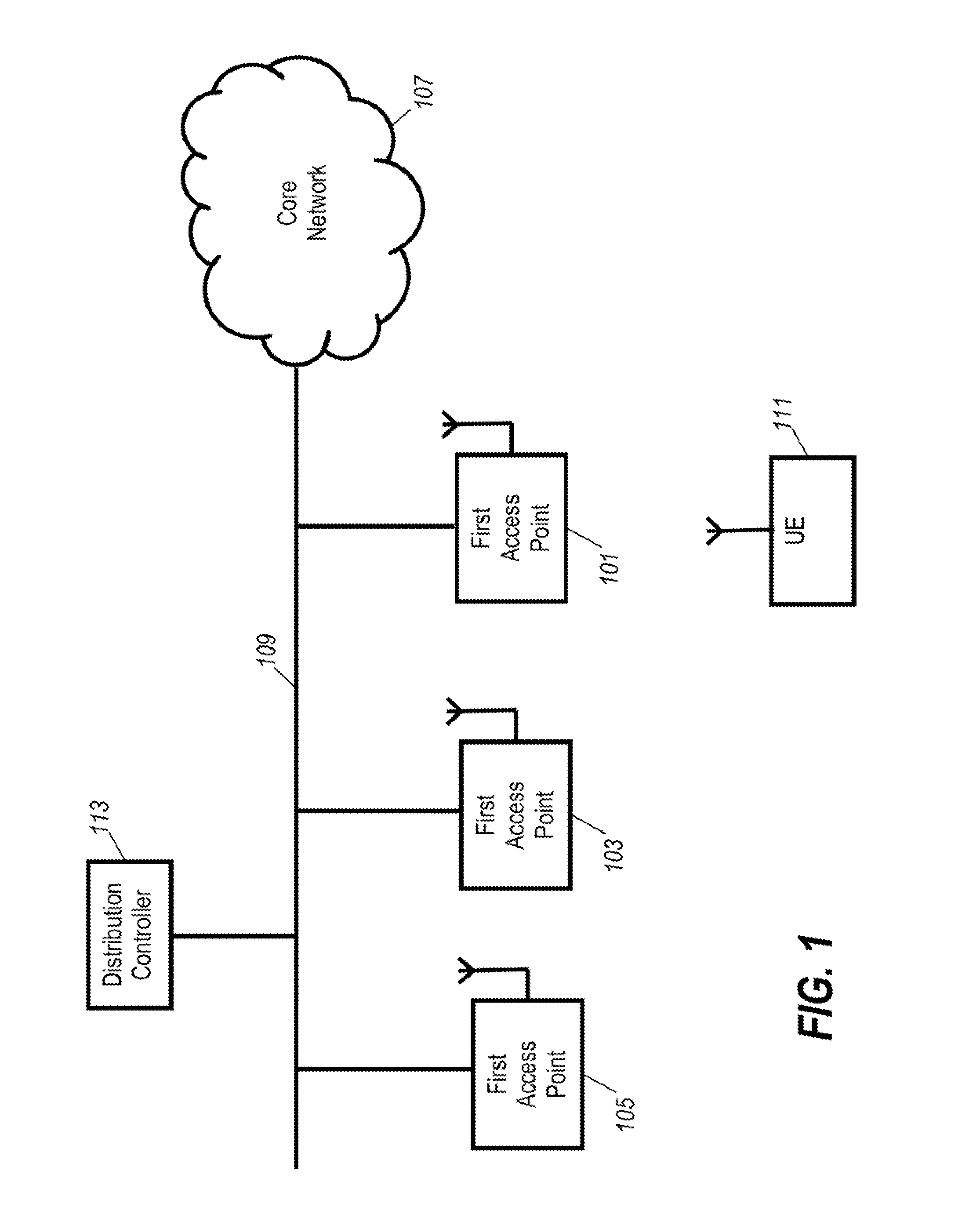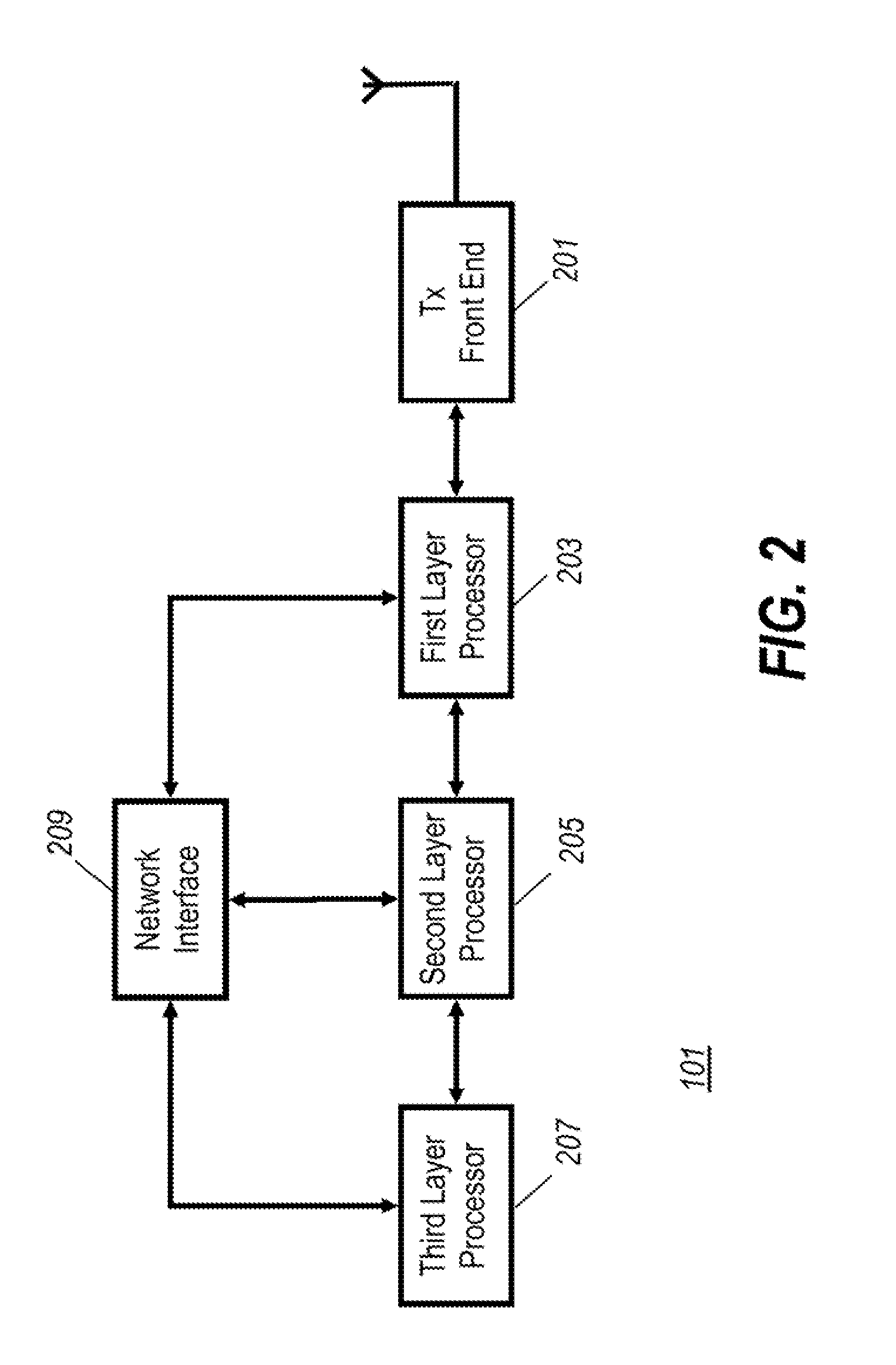Cellular communication system and a method of operation therefor
a communication system and cellular communication technology, applied in the field of cellular communication system, can solve the problems of inability to meet the needs of users, inability to communicate, etc., to achieve the effect of improving performance, reducing signalling, cost, complexity and/or resource usage, and improving performan
- Summary
- Abstract
- Description
- Claims
- Application Information
AI Technical Summary
Benefits of technology
Problems solved by technology
Method used
Image
Examples
Embodiment Construction
[0027]The following description focuses on embodiments of the invention applicable to a UMTS cellular communication system. However, it will be appreciated that the invention is not limited to this application but may be applied to many other cellular communication systems.
[0028]FIG. 1 illustrates an example of a UMTS cellular communication system in accordance with some embodiments of the invention.
[0029]The UMTS cellular communication system comprises a number of base stations which support user equipments over the air interface of the UMTS communication system. FIG. 1 illustrates three base stations 101, 103, 105 which coupled to a core network 107 via a local network 109. In the example the base stations 101-105 are collapsed architecture pico-cell base stations that comprise both RNC and base station (Node B) functionality. Specifically, the base stations 101-105 are access points intended to provide access to the cellular communication system within a very small area, such as ...
PUM
 Login to View More
Login to View More Abstract
Description
Claims
Application Information
 Login to View More
Login to View More - R&D
- Intellectual Property
- Life Sciences
- Materials
- Tech Scout
- Unparalleled Data Quality
- Higher Quality Content
- 60% Fewer Hallucinations
Browse by: Latest US Patents, China's latest patents, Technical Efficacy Thesaurus, Application Domain, Technology Topic, Popular Technical Reports.
© 2025 PatSnap. All rights reserved.Legal|Privacy policy|Modern Slavery Act Transparency Statement|Sitemap|About US| Contact US: help@patsnap.com



